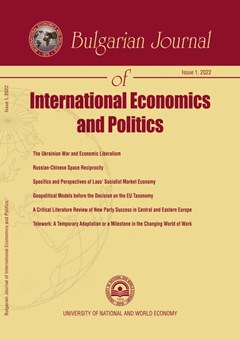A Critical Literature Review of New Party Success in Central and Eastern Europe
Author: Yuxiang Lin
Abstract
The paper offers a critical literature review of existing explanations for new party success in Central and Eastern Europe after the fall of communism in 1989. The paper presents the strengths and weaknesses of existing approaches, arguing that the historical analysis, the sociological explanation, and the institutional framework can provide sources of changes in party systems, and set constraints to political party leaders, but fail to elucidate variations in individual parties. The paper then continues to reflect on `the agential approach and the party-specific factors such as partisanship and organization, stating that while the partisanship approach is not appropriate for the study of party politics in Central and Eastern Europe due to the region’s short time scope of merely three decades of democratisation so far, the choices and crafting of party leaders as well as the party organization development are crucial to spelling out why some new parties endure, while others are short-lived.
JEL: N44, L39

